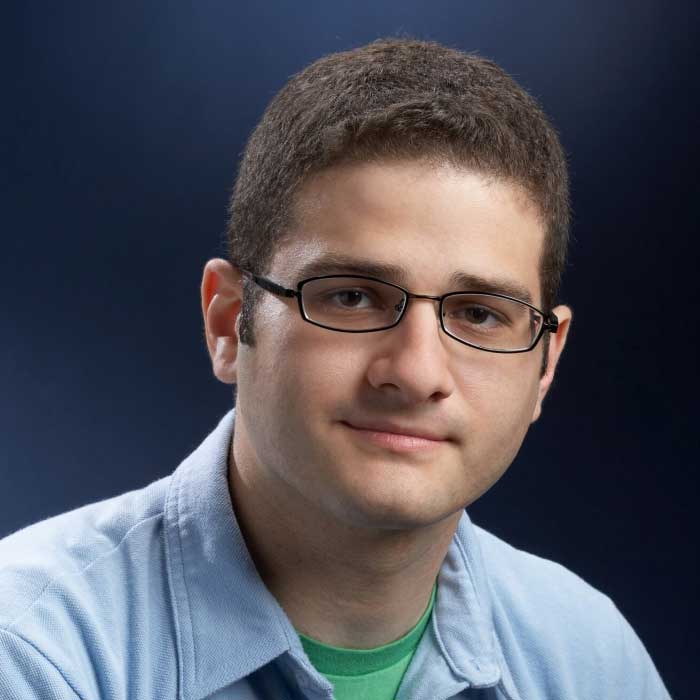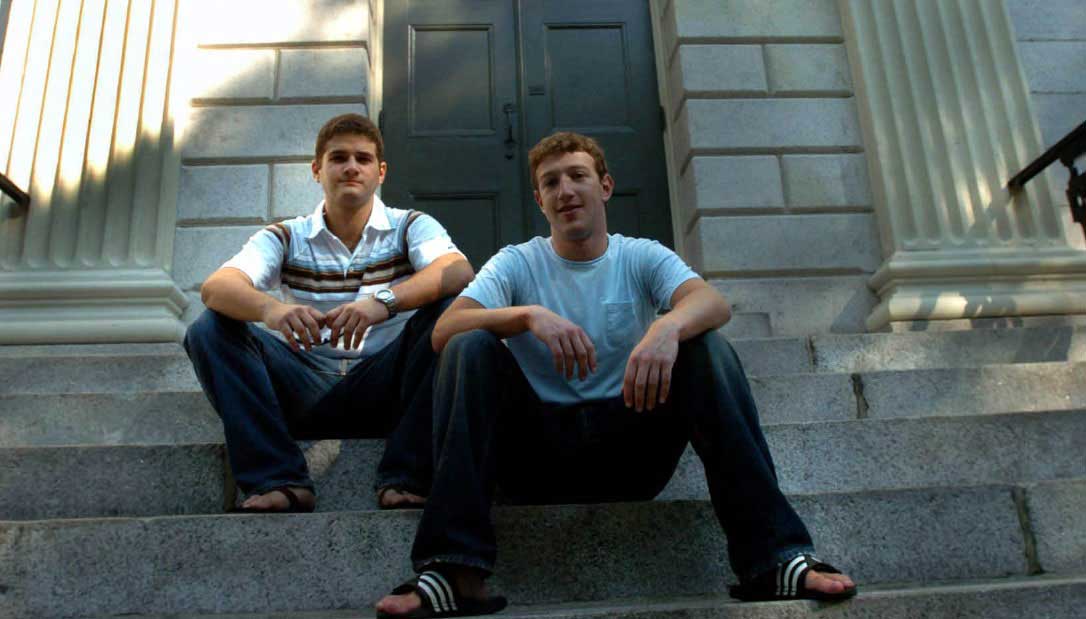
"There's an idealization of being an entrepreneur, but the most important thing is to have a really great idea."
- Dustin Moskovitz
There aren't many people in the world that can become a billionaire even if they sum all the money they earn in a lifetime without spending a cent, let alone being a billionaire before the age of 30. Dustin Moskovitz who is an entrepreneur that co-founded Facebook, is known to be the youngest billionaire after Snapchat founder Evan Spiegel.
Moskovitz was responsible for Facebook's early growth and development. He oversaw the company's mobile strategy and development before leaving the company to found Asana.
Despite his status, he took a different path that many other billionaires do in common. He views his fortune as a resource to promote the social good rather than as a means to fulfill his own interests.
"I never viewed money as being 'my money.' I always saw it as 'The money.' It's a resource," he said. "If it pools up around me then it needs to be flushed back out into the system."
Early Life
Dustin Moskovitz was born in May 22nd, 1984, in Gainesville, Florida. Living in a Jewish family, Moskovitz spent his early years in Ocala where his father started a psychiatry practice. His mother was a teacher and an artist. He attended Vanguard High School to then graduate IB Diploma Program. Moskovitz then continued his studies by attending Harvard University taking economics major.
As a boy, Moskovitz had dreams of becoming an Air Force Pilot. After he grew up, he thought he might go to business school. Or graduate school. Or maybe to then work with technology company. At first, he has little plans for his future; he just wanted to graduate.
But when he was at Harvard, he decided that business was indeed his future.
Co-Founding Facebook In A Dorm Room
During his studies at Harvard University, Dustin Moskovitz was a college room mate of Mark Zuckerberg, Eduardo Saverin, Andrew McCollum and Chris Hughes. The four person became the original co-founder of Facebook; they are the the people who conceptualized the social networking website in their dorm room at Harvard University in February 2004.
When Zuckerberg was creating Facebook, he needed some help, in which was part of Moskovitz's skills."I didn't really pitch him," Moskovitz said. "It was more like he was working on this thing and I was sitting next to him, and he would say, 'Hey, can you help me with this?'"
Moskovitz became Facebook's third employee. The very first thing he worked on with Facebook was configuring its email server.
Initially, Facebook limited its membership to only Harvard Students. But later after seeing a sudden spike of users' usage, the founders decided to expand it to other universities around Boston, Ivy League and Stanford.
On the days he was with Facebook, Moskovitz supervised the technical side of the social network. As a programmer, he was the company's first CTO who led the technical staff. He was also responsible for the company's mobile strategy and development, as well as the maintenance of Facebook's main architecture.
As one of Facebook's co-founders, Moskovitz was then became Facebook's first Vice President of Engineering, and was heavily involved in its early growth until it came to popularity.
Moskovitz then dropped out of the university after two years Facebook was launched. He joined Zuckerberg in Palo Alto to continue his work on Facebook's new base in a rented house. The four co-founders hired 8 employees, and got early investments from Sean Parker who joined than a few months later. Parker became Facebook's first President, and for a brief time, a roommate at the Facebook house.
"It was kind of like an evolution of seriousness of the company," he said. "When we first left school for the summer, we thought we were coming back in the fall. And then it eventually became dropping out. But at each of those phases, it felt like it was the appropriate thing to do."
Moskovitz had 6 percent stockholding in the internet company and was a part owner. After raising capital, Facebook was valued in 2008 to about $50 billion. This meant that, on paper, Dustin was a billionaire with a wealth of nearly $12 billion.
On October 3, 2008, Moskovitz announced his departure from Facebook.
In 2011, Forbes named his as one of the youngest self-made billionaires in the world with an estimated wealth of about $5.1 billion. His wealth was calculated on the basis of his Facebook stockholding of 2.34 percent.

Co-Founding Asana
While still at Facebook, Dustin Moskovitz developed software to help streamline the social network's workflow. At first, the software was designed for the engineering team, but it was quickly adopted by other departments. He recalled the moment when he walked past random desks at Facebook's office and saw his software running on people's computers.
This reminded him of Facebook's early days when it took off from Harvard campus. This inspired Moskovitz to create a new company.
After announcing his departure in 2008, Moskovitz co-founded Asana with Justin Rosenstein, an ex-engineer at Facebook. Asana that has its name taken from a Sanskrit word meaning "yoga pose", was officially launched in November 2011. In its initial development, Moskovitz gave each of its engineers $10,000 to spend so that they can improve their work by purchasing whatever computing equipment they want.
Asana is a web and mobile application based on software-as-a-service (SaaS), designed to improve team collaboration and project management. With it, users can tasks without using email.
In the office, Moskovitz and Rosenstein do not have separate offices but gather and sit among Asana's employees.
In 2009, Asana closed a funding deal worth $9 million. In 2011, it received $1.2 million from investors including Ron Conway, Peter Thiel, Mitch Kapor, Owen van Natta, Sean Parker, and former Facebook Director of Mobile Jed Stremel. This was then followed by another round with $9 million Series A in an investment led by Benchmark Capital. On July 2012, Asana announced another round of funding that include investors Peter Thiel and Founders Fund, along with existing investors Benchmark, Andreessen-Horowitz, and Mitch Kapor. The amount of investment Asana received at that time was $28 million.
In 2012, Asana announced a feature called Inbox in 2012. This was its aim to minimize the use of email as a step towards building a post-email application. Updates to status, tasks, comments and other changes that would normally reserve for email, was replaced with Inbox.
When Thiel joining the Board of Directors, Asana was valued at $280 million.
Despite being successful, Asana did not reach the same heights in fame and fortune as Facebook.
Personal Life
As a billionaire with his own effort, Dustin Moskovitz that is 8 days younger than Mark Zuckerberg, is not living like a billionaire in common. He comes to work every day because, although his fortunes was already made, he still thinks he have to do something with his life.
"When we think of work, we think of work as an act of service, as an act of love for humanity," he said. "If we were just retired, we wouldn't be serving anyone."
With a net worth exceeding $9 billion in 2016, he still likes to ride his bike to work, drive a used car and flies commercially. He once had his bike stolen.
Moskovitz and Asana's co-founder Justin Rosenstein are similar to Zuckerberg: they seem to be uninterested to flash and pronouncing their wealth out loud like many billionaires commonly do. The three, despite their billionaire status, like to keep their profile low, including to how they dress.
Moskovitz is married to former Wall Street Journal reporter Cari Tuna. The couple first met when Tuna was fresh out of Yale and a newbie reporter. Her co-worker was a friend of Moskovitz, and she was the one who set them up for a blind date.
Moskovitz believes that money should be put to good use and that there is no better way to spend money than using it to help others. When asked about their wealth, they replied "It's pooled up around us right now, but it belongs to the world."
With the guidance of The Silicon Valley Community Foundation (SVCF), Moskovitz and his wife built a philanthropic foundation Good Ventures, which has given millions of dollars to causes that range from malaria eradication to marriage equality, and Good Ventures LLC, a for-profit investment firm that donates its earnings back to the Good Ventures Foundation. The organization also led a $15 million investment round in artificial intelligence company Vicarious FPC where Moskovitz sits on the company's Board. In June 2012, Good Ventures announced a close partnership with charity evaluator GiveWell.
After Moskovitz became the world's youngest billionaire, Cari quit her job to work on the couple's charitable giving full-time.
As an active philanthropist, Moskovitz that gave away a part of his wealth he made through Facebook to varied charities, also joined Zuckerberg as a member of Bill Gates and Warren Buffet's Giving Pledge, which commits billionaires to giving away most of their wealth. Moskovitz and his wife are the youngest couple to sign into Giving Pledge, and they are also regarded as Silicon Valley's most low-key billionaires.
Moskovitz was also the biggest angel investor in the mobile photo-sharing site Path, run by another former employee of Facebook, David Morin. Moskovitz was the one who advised Morin to reject a $100 million offer from Google when it was interested to acquire Path in 2011.
In the film The Social Network Moskovitz was played by actor Joseph Mazzello. In a question-and-answer website Quora, Moskovitz said that the film "emphasizes things that didn't matter (like the Winklevoss brothers, whom I've still never even met and had no part in the work we did to create the site over the past 6 years) and leaves out things that we really did (like the many other people in our lives at the time, who supported us in innumerable ways)."
It was in 2013 that Moskovitz blogged out about his meeting with the Winklevoss brothers for the first time during a desert festival.
Moskovitz and his wife live in San Francisco, California. Their friends and colleagues mention that they prefer to spend their free time doing yoga, meditating and taking walks.
